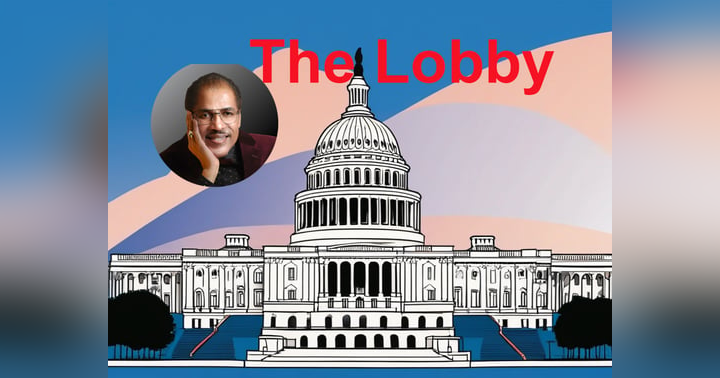Free Speech Under Attack

Free Speech Under Attack
Article by Butch Leake
Copyright 2024
Free Speech Under Attack: The Current State of Free Speech in Society
Freedom of speech has long been considered a cornerstone of democratic societies, allowing individuals to express their opinions, ideas, and beliefs without fear of censorship or reprisal. However, in recent years, the concept of free speech has come under increasing scrutiny and criticism, as various events, laws, and controversies have raised questions about the limits of this fundamental right.
From the rise of social media platforms to the spread of misinformation and hate speech online, the landscape of free speech is rapidly evolving, presenting new challenges and opportunities for individuals and societies around the world. In this article, we will explore the current state of free speech in society, analyzing recent events, laws, and controversies, and discussing their impact on democracy, civil liberties, and social discourse.
Historical Context
To understand the current state of free speech, it is essential to first examine its historical roots and evolution. The concept of free speech can be traced back to ancient Greece and Rome, where philosophers and thinkers such as Socrates and Cicero championed the right to express one's thoughts and ideas openly and freely.
In modern times, the importance of free speech was enshrined in documents such as the United States Constitution's First Amendment, which guarantees the right to freedom of speech, religion, and the press. Throughout history, free speech has played a crucial role in advancing social progress, promoting democratic values, and challenging oppressive systems of power and authority.
Recent Events and Controversies
In recent years, the concept of free speech has come under attack from various quarters, as individuals and groups have sought to limit or restrict the expression of ideas and opinions that they find offensive or harmful. One of the most significant challenges to free speech has come from the rise of social media platforms, which have become powerful tools for disseminating information and ideas, but also breeding grounds for misinformation, hate speech, and online harassment.
The spread of fake news and disinformation online has fueled concerns about the impact of social media on public discourse, prompting calls for stronger regulation and oversight of online platforms. In response to these challenges, social media companies have implemented policies and algorithms to combat hate speech, fake news, and other forms of harmful content, but these efforts have sparked debates about the limits of free speech and the role of tech companies in policing online speech.
In addition to the challenges posed by social media, free speech has also come under attack from governments and authorities around the world, as politicians and leaders seek to suppress dissent, silence critics, and control the flow of information. In countries such as China, Russia, and Turkey, governments have enacted laws and regulations to censor and control the internet, restrict media freedom, and crack down on political dissent.
Impact on Democracy and Civil Liberties
The erosion of free speech poses a significant threat to democracy and civil liberties, as the ability to express dissenting views, challenge authority, and hold governments accountable is essential for a healthy and functioning democracy. When individuals and groups are prevented from speaking out, sharing their opinions, and engaging in public debate, the democratic process is undermined, and the rights and freedoms of all citizens are jeopardized.
Moreover, the suppression of free speech can have a chilling effect on public discourse, stifling creativity, innovation, and the exchange of ideas that are vital for social progress and development. When individuals are afraid to speak out, express dissent, or challenge prevailing beliefs and norms, society becomes stagnant, closed-minded, and intolerant of diversity and difference.
In light of these challenges, it is essential for individuals and societies to defend and protect free speech rights, and to push back against efforts to restrict or censor the expression of ideas and opinions. By promoting a culture of open dialogue, critical thinking, and respectful debate, we can create a more inclusive, tolerant, and democratic society where all voices are heard and valued.
Recommendations for Protecting Free Speech
In today's digital age, where information travels at the speed of light and social media platforms have become the primary means of communication, it is more critical than ever for individuals to protect and preserve free speech rights. To safeguard free speech in society, individuals can take the following actions:
1. Educate yourself about the importance of free speech, and its role in promoting democracy, civil liberties, and social progress. By understanding the value of free speech, individuals can better appreciate the need to defend and protect this fundamental right.
2. Speak out against censorship, repression, and attempts to silence dissenting voices. When you see free speech being threatened, whether online or offline, speak up, and stand up for the right of all individuals to express their opinions and ideas freely and openly.
3. Engage in respectful and constructive dialogue with others, even those with whom you disagree. By listening to different perspectives, engaging in thoughtful debate, and seeking common ground, individuals can foster a culture of open dialogue and mutual respect that is essential for a healthy and functioning democracy.
4. Support organizations and advocacy groups that are dedicated to protecting and promoting free speech rights. By donating, volunteering, or getting involved in campaigns and initiatives that defend free speech, individuals can contribute to the ongoing fight for freedom of expression and the right to dissent.
Conclusion
In conclusion, free speech is under attack in society, as various events, laws, and controversies have raised questions about the limits of this fundamental right. From the rise of social media platforms to the spread of misinformation and hate speech online, the landscape of free speech is rapidly evolving, presenting new challenges and opportunities for individuals and societies around the world.
To defend and protect free speech in society, individuals must educate themselves about the importance of this fundamental right, speak out against censorship and repression, engage in respectful dialogue with others, and support organizations and advocacy groups that are dedicated to promoting free speech rights. By taking these actions, individuals can help preserve and protect the right to freedom of expression, and ensure that all voices are heard and valued in today's digital age.



